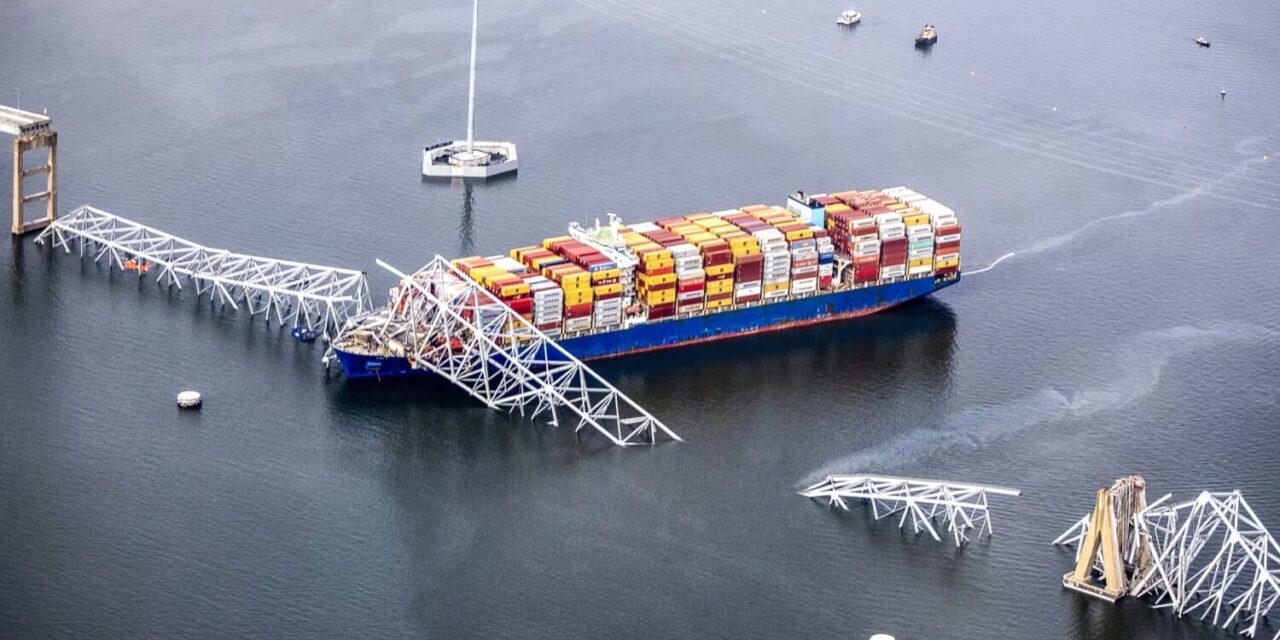Cleanup and rebuilding efforts could be hampered by new rules implemented by Senator Bob Casey and the Biden administration that are increasing time and costs to infrastructure projects.
The collapse of the Francis Scott Key Bridge in Baltimore and the indefinite closure of the Port of Baltimore will likely send ripple effects through the economy as a major artery for shipping a wide range of goods and commodities is closed. While the economic impact has yet to be measured, at least one former Trump official is sounding the alarm that critical infrastructure such as bridges, ports, and rail is at risk for catastrophic failures as government agencies focus on “policy goals like climate change, like social justice, [and] equity.”
The most immediate effect is likely to be on fuel, as hazardous materials such as diesel fuel were required to use the bridge, the only bridge crossing the Patapsco River. Hazardous materials are prohibited from being transported in either of the two underwater tunnels spanning the river. Additionally, the inability to offload ethanol that typically arrives at the Port by barge may drive up the price of gasoline in the region. If the Port is shut down for an extended period of time, everything from automobile imports to natural gas exports could be affected.
Republican Congressman Scott Perry, representing Pennsylvania’s 10th District, said on Fox Business earlier that the top priority needs to be to “clear the channel.”
A delayed reopening is increasingly likely as new federal guidelines on infrastructure projects imposed by one of President Biden’s biggest so-called achievements, the Infrastructure Investment and Jobs Act, are making it difficult for state transportation agencies across the country to source materials and complete projects. Requirements that prevent the purchasing of expensive components, scarcely made in the United States, from neighboring countries are driving up the costs to start these projects, let alone complete them. States requesting waivers from these provisions often have to wait as long as two years for a federal bureaucrat to grant the waiver.
Despite the Biden agenda of overspending that has led to inflation, Democrats are boasting about support of legislation that is driving up costs for Pennsylvania families. Two years after the Infrastructure Investment and Jobs Act was signed into law, the Keystone State’s Senator Bob Casey, Jr. celebrated the inflationary bill for “generational investments.” Casey’s Republican opponent for this November election Dave McCormick has vowed to repeal Biden’s excessive spending bills.
One of the most visible failures of Biden’s inflation-driving infrastructure spending is in electric vehicle infrastructure, in which more than $7.5 billion in federal funds was devoted to the construction of thousands of EV chargers. As of mid-December 2023, not a single charger has been installed.
Examples of delays and cost overruns were numerous before Biden’s new bureaucratic red tape: one project to expand electricity transmission in largely uninhabited areas took a decade and a half to complete, while airport improvement grants are required to address “racial equity” and a program to expand public utility services in rural communities is encouraging users of the program to include diversity, equity, and inclusion goals. Even The New York Times wrote in 2021 of the “cautionary tale” of expenses piling up while infrastructure projects languish.
With the history of federal infrastructure projects running past expected completion and over budget, officials from the Port of Baltimore said it is unknown how long the shipping channels will remain closed.
Photo credit: Tasos Katopodis / Getty Images






